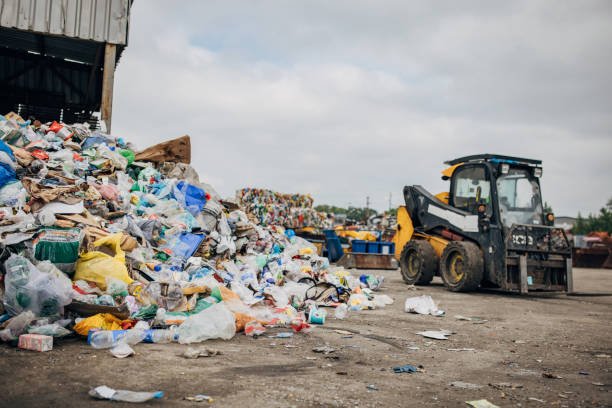Research Topics Related to Environmental Law
Environmental law has become one of the most dynamic fields of legal research in recent decades. As the world faces urgent issues such as climate change, biodiversity loss, pollution, and unsustainable resource use, legal scholars and practitioners are increasingly challenged to find innovative solutions. Research in environmental law is crucial because it provides actionable insights that shape legislation, litigation, policy-making, and advocacy.
This article explores key research topics related to environmental law, explains why they matter, and provides examples of potential research questions. Whether you are a law student, postgraduate researcher, or policy analyst, this guide will help you identify valuable and relevant areas of study.
Why Research Environmental Law?
- Global Relevance: Environmental issues cut across borders, making research highly impactful at both local and international levels.
- Policy Influence: Sound research can influence national laws, international treaties, and corporate practices.
- Interdisciplinary Scope: Environmental law research overlaps with economics, human rights, public health, engineering, and even technology.
- Career Opportunities: Specialists in environmental law are in demand in academia, NGOs, government agencies, and multinational corporations.
Key Research Topics in Environmental Law
1. Climate Change Law and Policy
- International Climate Agreements: Analyzing the effectiveness of the Paris Agreement and other frameworks.
- National Climate Legislation: How do domestic climate laws support or undermine global goals?
- Climate Justice and Equity: Researching the legal responsibilities of developed vs. developing nations.
- Litigation Trends: Studying landmark climate lawsuits and their implications for future legal action.
Sample Research Question: How effective are national climate adaptation laws in safeguarding vulnerable communities?
2. Biodiversity Conservation and Wildlife Protection
- Endangered Species Legislation: Examining the enforcement of CITES and domestic wildlife laws.
- Protected Areas and Indigenous Rights: Balancing conservation with the rights of local and indigenous communities.
- Illegal Wildlife Trade: Legal responses to cross-border trafficking of endangered species.
Sample Research Question: What role can indigenous customary law play in enhancing biodiversity conservation?
3. Pollution Control and Waste Management
- Air Quality Regulations: Comparative studies of emission standards across countries.
- Plastic Waste Bans: Effectiveness of legislation banning single-use plastics.
- E-Waste Management: Legal frameworks for recycling and safe disposal of electronic waste.
- Toxic Chemicals and Hazardous Waste: International law compliance and gaps in enforcement.
Sample Research Question: Do bans on single-use plastics reduce marine pollution, or are stronger enforcement mechanisms required?
4. Environmental Rights and Human Rights Law
- Right to a Healthy Environment: An emerging human right recognized in some jurisdictions.
- Environmental Defenders: Legal protections for activists and NGOs.
- Environmental Racism and Justice: Examining how marginalized communities bear disproportionate environmental burdens.
Sample Research Question: How have courts used human-rights principles to enforce the right to clean water?
5. Energy Law and Renewable Energy Transition
- Legal Frameworks for Renewable Energy: Incentives and barriers for solar, wind, and hydro power.
- Fossil Fuel Divestment: Legal approaches to phasing out coal, oil, and gas.
- Energy Justice: Ensuring fair access to clean energy across regions.
- Carbon Trading and Emission Markets: Evaluating the effectiveness of cap-and-trade systems.
Sample Research Question: Are renewable energy incentives under national law sufficient to meet net-zero targets by 2050?
6. Water Law and Ocean Governance
- Transboundary Water Disputes: Legal solutions for conflicts over shared rivers and lakes.
- Marine Pollution: Laws against oil spills, plastic waste, and chemical dumping.
- Ocean Governance: Implementation of UNCLOS (United Nations Convention on the Law of the Sea).
- Blue Economy Law: Legal frameworks for sustainable fishing and marine resource use.
Sample Research Question: How effective is UNCLOS in regulating deep-sea mining activities?
7. Environmental Litigation and Enforcement Mechanisms
- Role of Courts: How courts drive environmental protection through case law.
- Public Interest Litigation (PIL): A tool for enforcing environmental justice in countries like India, Kenya, and the Philippines.
- Corporate Accountability: Holding corporations liable for environmental damage.
- Environmental Tribunals: Specialized courts for environmental disputes.
Sample Research Question: What lessons can developing countries learn from environmental courts in Europe?
8. International Environmental Law and Global Governance
- Treaty Effectiveness: Are multilateral treaties like the Kyoto Protocol effective?
- Soft Law vs. Hard Law: Role of non-binding international principles.
- Global South and North Divide: Disparities in environmental obligations.
- International Environmental Crimes: Could ecocide become a recognized international crime?
Sample Research Question: Should ecocide be added to the Rome Statute of the International Criminal Court?
How to Choose the Right Environmental Law Topic
- Identify Your Interest: Do you prefer international treaties, national policies, or case law?
- Check Resources: Ensure there are enough academic articles, treaties, and cases available.
- Be Specific: Narrow down your focus (e.g., “plastic pollution in African coastal states” instead of “pollution”).
- Assess Relevance: Pick a topic with current legal or policy importance.
- Consider Practical Impact: Choose a topic that could contribute to real-world solutions.
FAQs on Environmental Law Research Topics
In this section, I will provide you with FAQs and answers on Research Topics Related to Environmental Law.
1. What are the most pressing research topics in environmental law today?
Climate change law, biodiversity protection, pollution control, and renewable energy law are among the most urgent areas of research.
2. How can students make their research unique?
By narrowing the scope to a specific case study, jurisdiction, or legal instrument, and incorporating interdisciplinary perspectives like economics or public health.
3. Can environmental law research be interdisciplinary?
Yes. Many strong research papers combine law with environmental science, engineering, economics, or sociology.
4. Which international treaties are most relevant to study?
The Paris Agreement (climate), CITES (biodiversity), UNCLOS (oceans), and Basel Convention (hazardous waste) are highly relevant.
5. What methods are suitable for environmental law research?
Doctrinal legal analysis, case law review, policy evaluation, comparative legal studies, and empirical interviews with practitioners or policymakers.
Final Thoughts
Environmental law research is not only academically rewarding but also socially impactful. It allows researchers to contribute to the urgent global fight against climate change, biodiversity loss, and pollution. By choosing a relevant and specific topic, law students and researchers can produce work that informs legislation, empowers communities, and shapes future policy.
If you are preparing for a dissertation, thesis, or academic paper, the research topics listed here provide a comprehensive foundation.
ALSO READ: Research Topics Related to Human Rights Law







One Comment